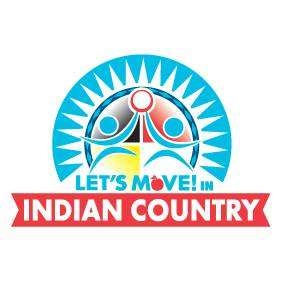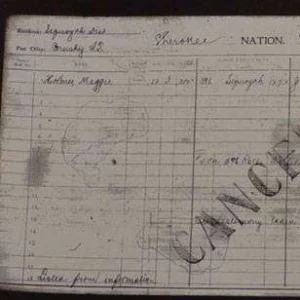Posted by Kimberly Teehee on February 09, 2012 at 11:15 AM EST
Today, First Lady Michelle Obama is hitting the road to kick off a three day, nation-wide tour celebrating the second anniversary of Let’s Move!. Since launching Let’s Move! on February 9, 2010, significant progress has been made to solve the problem of childhood obesity.
Over the past three decades, rates of childhood obesity in this country have tripled. Today, nearly one in every three children in the U.S. are overweight or obese. An integral part of the Let’s Move! initiative includes addressing the needs of populations where childhood obesity rates are particularly high, including American Indian and Alaska Native communities, who experience obesity and other related diseases atdisproportionately high rates and are twice as likely as the general population to be overweight. In May 2011, First Lady Michelle Obama launched Let’s Move! in Indian Country (LMIC), bringing together federal agencies, local communities, nonprofits, corporate partners, and tribes to end the epidemic of childhood obesity in Indian Country within a generation by creating a healthy start on life for children; ensuring families access to healthy, affordable, traditional foods; and increasing opportunities for physical activity.
The First Lady’s Let’s Move! tour will highlight examples of people making changes across the country. In Indian Country, parents, businesses, educators, elected officials, members of the military, chefs, physicians, athletes, childcare providers, schools, community and faith leaders and youth themselves have made substantial commitments to improve the health of our nation’s children. For example, Dallas Duplessis is a youth advocate for healthier eating and started a gardening club on her reservation in Tulalip, Washington. After witnessing the effects of unhealthy eating habits, Dallas and her family got involved with the Hilbulb Cultural Center program “Growing Together as Families,” which teaches families healthy eating habits. Dallas then started the Tulalip Youth Gardeners Club to inspire other kids to garden together with their families. President Obama recognized Dallas’ leadership as a White House Champion of Change in his remarks at the White House Tribal Nations Conference in December, noting that the First Lady would appreciate the goal of the club, which, in Dallas’ words, is “not to be couch potatoes, but to grow some potatoes.”
Dallas is just one of the many “champions” of the Let’s Move! initiative in Indian Country.
LMIC has worked with many stakeholders in Indian Country to create a comprehensive toolkit to connect communities, schools and tribal leaders to resources, funding, trainings and programs that will help improve the health of the next generation. The LMIC interagency partners have also worked towards four specific goals, informed by the work of the Childhood Obesity Task Force and the feedback received through meetings with tribal leaders and organizations. These goals include:
Creating a Healthy Start on Life: The Indian Health Service (IHS) launched the Baby-Friendly Hospital campaign to promote breast-feeding in IHS facilities and has committed to achieving baby friendly certification for all of their 14 federally-run obstetrics units.
Creating Healthy Learning Communities: The USDA Food and Nutrition Services delivered six trainings to Bureau of Indian Education (BIE) schools in 2011, to provide information on how schools can participate in the Healthier U.S. School Challenge – Fuel Up to Play 60, obtain funding for infrastructure development, and access programs and resources to serve healthier meals and snacks year-round to school age children. Because of the President’s commitment to the Healthy, Hunger-Free Kids Act, which reauthorized the Child Nutrition Act, the BIE began the process of updating agency standards to create a healthier school environment through a Bureau-wide Health and Wellness Policy for schools that will be implemented throughout the BIE school system this year.
Fostering Healthy, Comprehensive Food Systems Policies: USDA has worked to develop over twenty Food Policy Councils (FPC) across Indian Country to improve food production opportunities and access to healthy, affordable, and traditional foods.
Increasing Opportunities for Physical Activity: Last year the BIE launched the Presidential Active Lifestyle Award (PALA) Challenge in Indian Country with the help of the Chicago Bears’ and Nike N7 athlete Levi Horn. Many of the BIE schools have made this challenge their own by incorporating culturally relevant and traditional activities. With the help of partners like Coach-Across-America (CAA), Just Move It, and many others, LMIC is bringing coaches and Physical Education programming to communities previously lacking access to these opportunities.
Since the launch of LMIC, the White House has hosted several events focused on American Indian and Alaska Native health. In May 2011, St. Louis Rams Quarterback and Heisman Trophy Winner Sam Bradford joined local American Indian and Alaska Native youth on the national mall to film a PSA about the LMIC initiative. And in June 2011, the First Lady joined American Indian children for an afternoon in the White House Kitchen Garden planting the “three sisters” crops (Cherokee White Eagle corn, Rattlesnake pole beans, and Seminole squash). In July 2011, as part of the Summer South Lawn Series, the White House hosted its first-ever lacrosse clinic on the South Lawn, bringing players from the Iroquois Nationals Team to introduce local and Native American youth to the sport and its cultural traditions. Also in July 2011, the Department of Justice, working with federal agency partners, hosted a week-long National Intertribal Youth Summit in Santa Fe, NM to provide an opportunity for Administration officials to hear directly from youth in Indian Country on critical issues facing their communities. As part of the LMIC effort, the summit featured daily exercise clinics and a special field trip featuring golf, soccer and nutrition education clinics.
Only through continued support and leadership with tribes and tribal communities can LMIC succeed in building a healthy future for the youth of Indian Country. The Administration is committed to building on current progress and looks forward to expanding partnerships with tribes and other groups to end the epidemic of childhood obesity in Indian Country within a generation. For more information on these efforts please visit Let's Move!.
Kimberly Teehee is the Senior Policy Advisor for Native American Affairs, White House Domestic Policy Council




